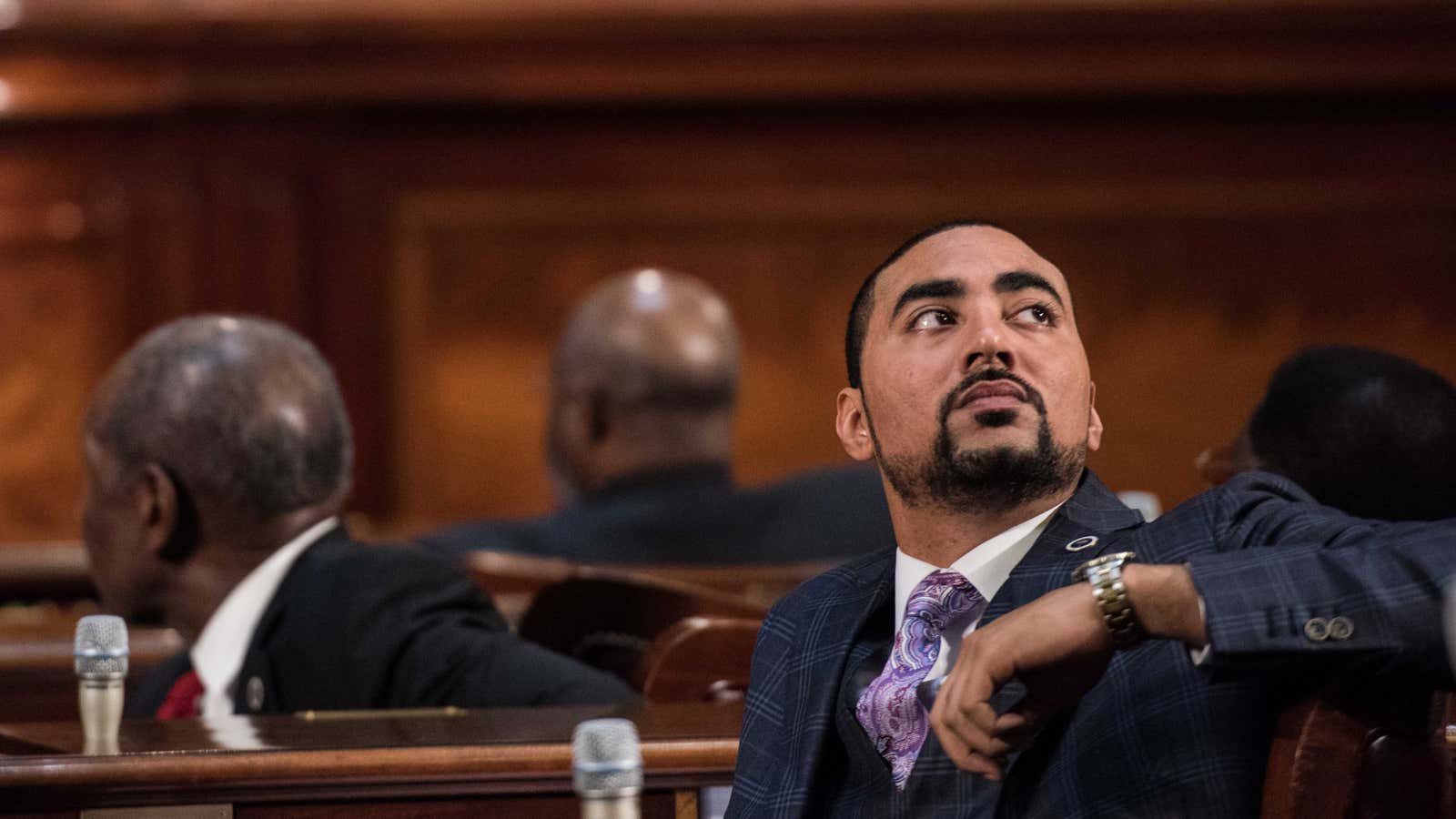Hillary Clinton’s campaign has a fall-back argument: If she fares poorly in Iowa, where she maintains a small lead in public opinion polls, and New Hampshire, where senator Bernie Sanders leads, it’s because those states aren’t very diverse. In subsequent primaries, her campaign contends, Clinton will ride to victory with the support of minorities, especially black voters in the critical state of South Carolina.
But the Clinton campaign should be troubled by news that a South Carolina lawmaker—who is also the attorney for the family of a black man killed by a Charleston police officer—has switched his endorsement from Clinton to Sanders.
“Hillary Clinton is more a representation of the status quo when I think about politics or about what it means to be a Democrat,” state representative Justin Bamberg told the New York Times. “Bernie Sanders on the other hand is bold. He doesn’t think like everyone else. He is not afraid to call things as they are.”
Clinton’s campaign did not respond to a request for comment on the development.
Polling suggests that Clinton’s support from black voters is in good shape. A recent Pew poll found that 69% of black Democrats thought Clinton would be a good president, while just 48% said the same thing about Sanders. In South Carolina, which will vote on February 27, a recent CBS/YouGov poll (pdf) found 76% of black Democratic primary voters support Clinton, and just 22% back Sanders.
But the Vermont senator is not as well known among the national voters as Clinton, and his campaign argues that his message will win them over. Indeed, Bamberg’s switch came after he gave Sanders a second look.
Sanders was initially caught off guard by the Black Lives Matter movement, which grew from outrage over police shootings of black men. But he adapted his economic plans to speak to black voters and has diligently taken advantage of the real and not-misplaced distrust among younger black activists and the Democratic establishment (see the travails of Chicago Mayor Rahm Emanuel). Now, Sanders has the rapper Killer Mike spinning for him after debates and astutely name-checked Representative James Clyburn, the dean of South Carolina’s black democrats.
Sanders hasn’t completely won over the new generation of black activists. He is generally unwilling to talk directly about race, preferring to use the rhetoric of class to show how his economic proposals would boost minorities. Ta-Nehisi Coates, whose essays on race have set the tone for the debate in the US, has criticized Sanders full-throated endorsement of economic policies that would dismantle entire industries, even as he dismisses the idea of reparations as too “divisive.”
Coates’ critique of the US liberal imagination,which he applies equally to Clinton, may not help black voters choose between the two candidates. The response to his essay—mostly accusations that Coates or his primary employer, the Atlantic, are in the bag for corporations or for Clinton—suggests that voters seeking change may not want to look past surface rhetoric. (The Atlantic is owned by the Atlantic Media Company, which also owns Quartz.)
Clinton, like Sanders, has been criticized by Black Lives Matter, but has weathered their protests with backing from surrogates like the civil rights legend, Rep. John Lewis. She has benefitted from her and her husband’s long relationship with black voters, and is attempting to repair some of the rifts created during her bruising 2007 primary battle with Barack Obama. But if Clinton’s campaign can’t prove her strength in the early states, there is little to stop the voters she is counting on to back her, like Bamberg, from reconsidering.
Clinton may have one notable ace in the hole. Reading between the lines of a recent interview Obama conducted with Politico, it’s clear that the first black president leans more toward Clinton than Sanders, and even with some lingering disappointment in his term, he remains the most influential Democrat. The sitting president rarely intervenes in his party’s primary race, and Obama has said that he will not endorse any candidates this year. But there are plenty of ways for him to offer more than a hint of his preferences, and that might be enough to ensure that Hillary’s firewall remains intact.
